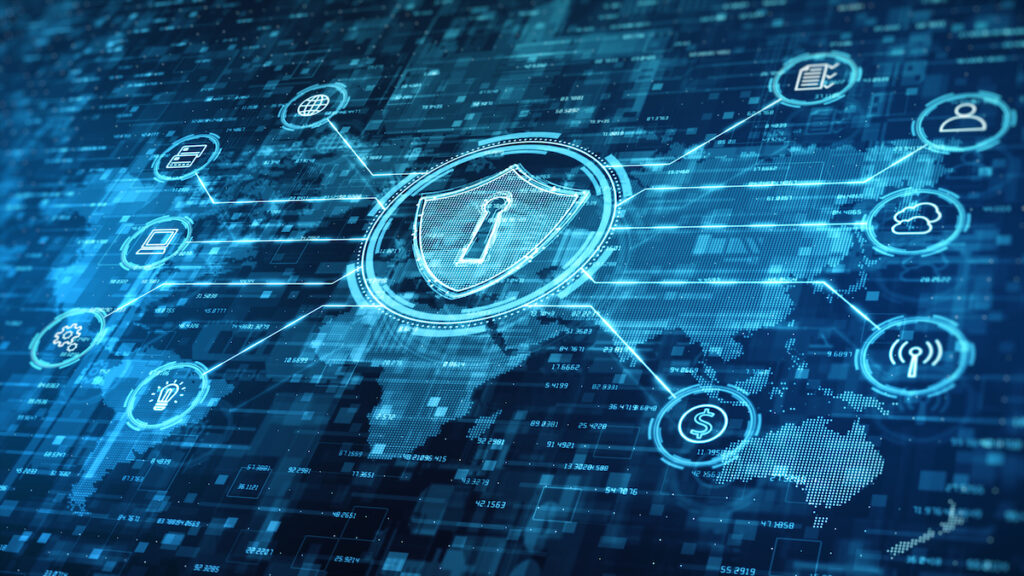The digital age has brought unprecedented convenience and connectivity, but it has also exposed us to various risks and threats. As we rely more on technology for communication, commerce, and information sharing, the need for robust cybersecurity measures becomes increasingly crucial. In this article, we will explore the importance of cybersecurity, the potential threats in the cyber world, the consequences of inadequate security, the benefits of strong cybersecurity, best practices to protect against cyber threats, and emerging trends in this ever-evolving field.
Contents
- 1 Understanding Cybersecurity
- 2 Importance of Cybersecurity
- 2.1 Protecting Sensitive Information
- 2.2 Preventing Financial Losses
- 2.3 Safeguarding National Security
- 2.4 Preserving Business Continuity
- 2.5 Protecting Individuals and Their Digital Lives
- 2.6 Safeguarding Critical Infrastructure
- 2.7 Preserving Trust in the Digital Ecosystem
- 2.8 Ensuring Compliance with Regulations
- 2.9 Proactive Risk Management
- 2.10 Promoting Global Security Collaboration
Understanding Cybersecurity

Cybersecurity refers to the practices and measures taken to protect computer systems, networks, and data from unauthorized access, use, disclosure, disruption, modification, or destruction. It encompasses a wide range of technologies, processes, and practices designed to safeguard information and prevent cyber threats.
Key Concepts in Cybersecurity
- Confidentiality: Ensuring that data is accessible only to authorized individuals or systems and remains protected from unauthorized access.
- Integrity: Ensuring the accuracy, consistency, and trustworthiness of data and information by preventing unauthorized alteration or tampering.
- Availability: Ensuring that systems, networks, and data are consistently accessible to authorized users when needed, minimizing downtime and disruptions.
- Authentication: Verifying the identity of individuals or systems attempting to access resources. This is usually through the use of usernames, passwords, or other credentials.
- Authorization: Granting specific privileges or permissions to authenticated individuals or systems based on their roles and responsibilities.
- Encryption: The process of converting data into a format that can only be read or understood by authorized parties, preventing unauthorized interception or access.
- Firewalls: Network security devices that monitor and control incoming and outgoing network traffic based on predetermined security rules, protecting against unauthorized access and malicious activities.
Importance of Cybersecurity

These are some of the key points for the importance of cybersecurity:
Protecting Sensitive Information
In today’s digital age, sensitive information such as personal data, financial details, and intellectual property is at risk of being stolen or compromised. Cybersecurity measures help safeguard this information from unauthorized access, ensuring privacy and protecting individuals and organizations from potential harm.
Preventing Financial Losses
Cyberattacks can lead to significant financial losses for individuals and businesses. Cybersecurity helps prevent financial fraud, online scams, ransomware attacks, and other forms of cybercrime that can result in monetary damages. By implementing robust security measures, organizations can minimize the risk of financial loss and maintain the trust of their customers.
Safeguarding National Security
Cybersecurity is crucial for maintaining the national security of countries. Government agencies, military organizations, and critical infrastructure systems are prime targets for cyber threats. Protecting these systems and networks is essential to prevent disruptions, information theft, and potential acts of cyber warfare that can have severe consequences for a nation’s security and stability.
Preserving Business Continuity
Cybersecurity plays a vital role in ensuring the continuity of business operations. Cyberattacks can disrupt network services, halt production processes, and cause significant downtime. By implementing robust security measures, organizations can minimize the risk of such disruptions, enabling them to continue providing essential services and products without interruption.
Protecting Individuals and Their Digital Lives
Cybersecurity is equally important for individuals as it is for organizations. With the increasing reliance on digital devices, online banking, e-commerce, and social media, individuals are more susceptible to cyber threats. Cybersecurity practices, such as strong passwords, regular software updates, and safe browsing habits, help protect personal information and reduce the risk of identity theft, fraud, and online harassment.
Safeguarding Critical Infrastructure
Critical infrastructure, including power grids, transportation systems, and communication networks, is vulnerable to cyberattacks. These attacks can have devastating consequences, impacting public safety, the economy, and essential services. Robust cybersecurity measures are essential to protect these critical systems and prevent potential disruptions that could affect large populations and entire economies.
Preserving Trust in the Digital Ecosystem
Cybersecurity fosters trust in the digital ecosystem, encouraging individuals and businesses to embrace technology without fear of security breaches. When users feel confident that their data and transactions are secure, they are more likely to engage in online activities, fostering innovation, economic growth, and digital transformation.
Ensuring Compliance with Regulations
In response to the growing cyber threats, governments, and regulatory bodies have introduced various cybersecurity regulations and frameworks. Organizations need to adhere to these standards to protect customer data, avoid legal repercussions, and maintain their reputation. Implementing robust cybersecurity measures helps organizations remain compliant with the applicable regulations.
Proactive Risk Management
Cybersecurity is an essential component of proactive risk management. By identifying potential vulnerabilities, implementing appropriate security controls, and regularly assessing and mitigating risks, organizations can minimize the likelihood and impact of cyber threats. Taking a proactive approach to cybersecurity ensures readiness to respond effectively to emerging threats.
Promoting Global Security Collaboration
Cybersecurity is a global challenge that requires international collaboration and information sharing. By working together, countries, organizations, and security experts can exchange threat intelligence, best practices, and technologies to enhance cybersecurity capabilities worldwide. Collaboration fosters a collective defense against cyber threats and strengthens global security efforts.
In an interconnected digital landscape, cybersecurity is more important than ever before. Protecting personal information, preserving business operations, and maintaining customer trust all rely on implementing robust cybersecurity measures. By understanding the threats, consequences of inadequate security, and best practices, individuals and organizations can safeguard themselves against cyber threats and contribute to a safer digital world.
If you are looking to implement any of the Infosec compliance frameworks such as SOC 2 compliance, HIPAA, ISO 27001, and GDPR compliance, Impanix can help. Book a Free consultation call with our experts or email us at [email protected] for inquiries.
